How the world capital of population decline gained its title and lost its youth.
Ognyan Nenchev has spent the last 15 years trying to escape Vidin, a province in the north-western tip of Bulgaria. Six times he went in search of a better life, six times he came back. His decision to keep returning to the poorest corner of the poorest country of the European Union was unusual. His desire to leave was not. A steady exodus of working-age adults has helped nearly halve Vidin’s population over the last 35 years – from 162,000 in 1985 to around 85,000 in 2018.
Ognyan began leaving in search of work in his late forties, after losing his job as an animal-health inspector in Vidin city, the capital of the province that shares its name. Unlike the millions of Bulgarians who went to Western Europe, he confined his quest to his country. Sometimes he found work as a veterinary doctor, on the basis of his original qualification. Sometimes he was hired as a science teacher or heating engineer on the basis of additional qualifications. He returned to Vidin whenever the work ran out, with the same feeling every time: dread. “It was as if I were coming back to my grave,” he said. “This is a dying city.”
Vidin is in a death spiral in which a stagnating economy and demographic decline have been circling each other. People have been leaving the province in search of prosperity, and prosperity has eluded the province because so many people have left. While a similar dynamic is in play across much of Eastern Europe, its impact in Vidin has been dramatic. The population of the province has declined at the fastest rate in Bulgaria, which itself has the fastest declining population in the EU, and indeed, the world. Vidin can reasonably claim to be the world capital of population decline – the ground zero of demographic collapse.
An outlier in the global context, Vidin is nonetheless typical of its region. Since the fall of communism 30 years ago, the countries of Eastern and South-Eastern Europe have been witness to an extraordinary phenomenon – a gradual emptying of the land. According to a United Nations report from 2019, the region is home to nine of the 10 countries with the world’s fastest shrinking populations.
Behind these statistics are two big trends: westward emigration and falling fertility rates. Millions of young people have been leaving Europe’s east for the wealthier economies of its west. At the same time, those left behind have been having fewer children than preceding generations. These factors have combined to produce a rate of population decline unseen in times of peace and more reminiscent of wars and pandemics.
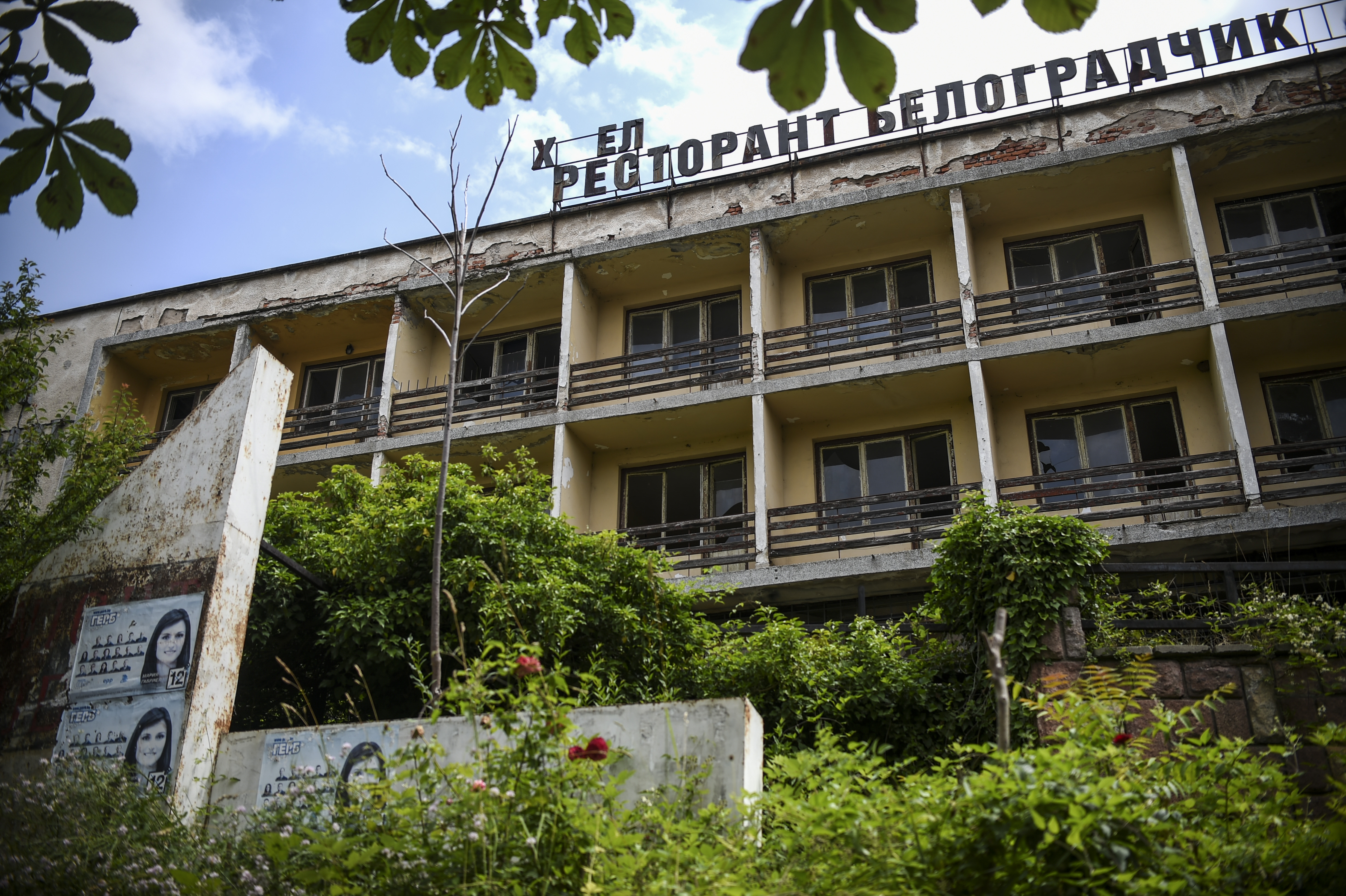
Abandoned buildings are a common sight in Vidin province. Photo: © Nikolay Doychinov
This story by the Balkan Investigative Reporting Network, BIRN, examines how Vidin became the epicentre of this phenomenon, and what that means within a Europe facing demographic pressures of its own. For it is not just Eastern European families that are shrinking. Across the European Union, the fertility rate, or the average number of children born to women of reproductive age, has been falling for decades. If the bloc overall has avoided the rate of population decline seen in Eastern Europe, that is largely because its western member states have been adding migrants from beyond its frontiers, as well as from within them.
In Eastern Europe, however, many governments are openly hostile towards migration, particularly from Asia, Africa and the Middle East. Leaders across the region routinely demand tighter border controls and drag their feet over accepting their EU-mandated quota of refugees and migrants. Yet the rate of demographic decline is also forcing some hard choices upon them.
The decline carries long-term economic costs. Over time, a shrinking workforce becomes unattractive to investors and unable to subsidise the pension and healthcare needs of an ageing population. Attracting foreign workers can help offset the cost, better than other measures such as encouraging larger families or enticing expatriates to return. Poland and Lithuania are just two of the countries that have begun encouraging a very specific form of migration – from nearby Ukraine, a country outside the EU whose economy has been weakened by conflict with Russia. South-Eastern European states such as Bulgaria have yet to adopt similar policies, but the rate of demographic decline may soon leave them with no choice.

Vidin was once a a major trading hub, thanks to its location along the River Danube. Photo: © Nikolay Doychinov
“A massive wave of migration is needed,” said Georgi Burdarov, a demographer at University St. Kliment Ohridski in the Bulgarian capital, Sofia, who has been advising the Bulgarian government. “If the land cannot be filled by a Bulgarian population, another will come. This territory will have a better future.”
Cosmopolitan past
Vidin lies at the end of a five-hour drive from Sofia. The 240km route passes through the Stara Planina, or Balkan Mountains, forming part of a busy road-freight corridor linking Central Europe to the Greek port of Thessaloniki. Along mountainous stretches of the route, cars and container trucks navigate narrow, potholed lanes. Accidents are frequent, and tend to block traffic in both directions. Successive governments have promised to upgrade the road but so far nothing tangible has been done.
Back in the 1980s, the journey between Vidin and Sofia took a mere 35 minutes. The cities were linked by passenger flights operated by the state-owned airline. Tickets were cheap. Older residents of Vidin recall visiting the capital for no other purpose than to go shopping.
However, the service became unviable after the fall of the communist state, the flights were suspended in 1992, and Vidin’s sole airport eventually fell into disuse. Today, its forlorn control tower overlooks a runway strewn with old tyres and broken glass. Tales from Vidin’s aviation era – the story, for instance, of the passenger who took a chicken aboard the plane, sedating it with brandy – have entered the folklore.
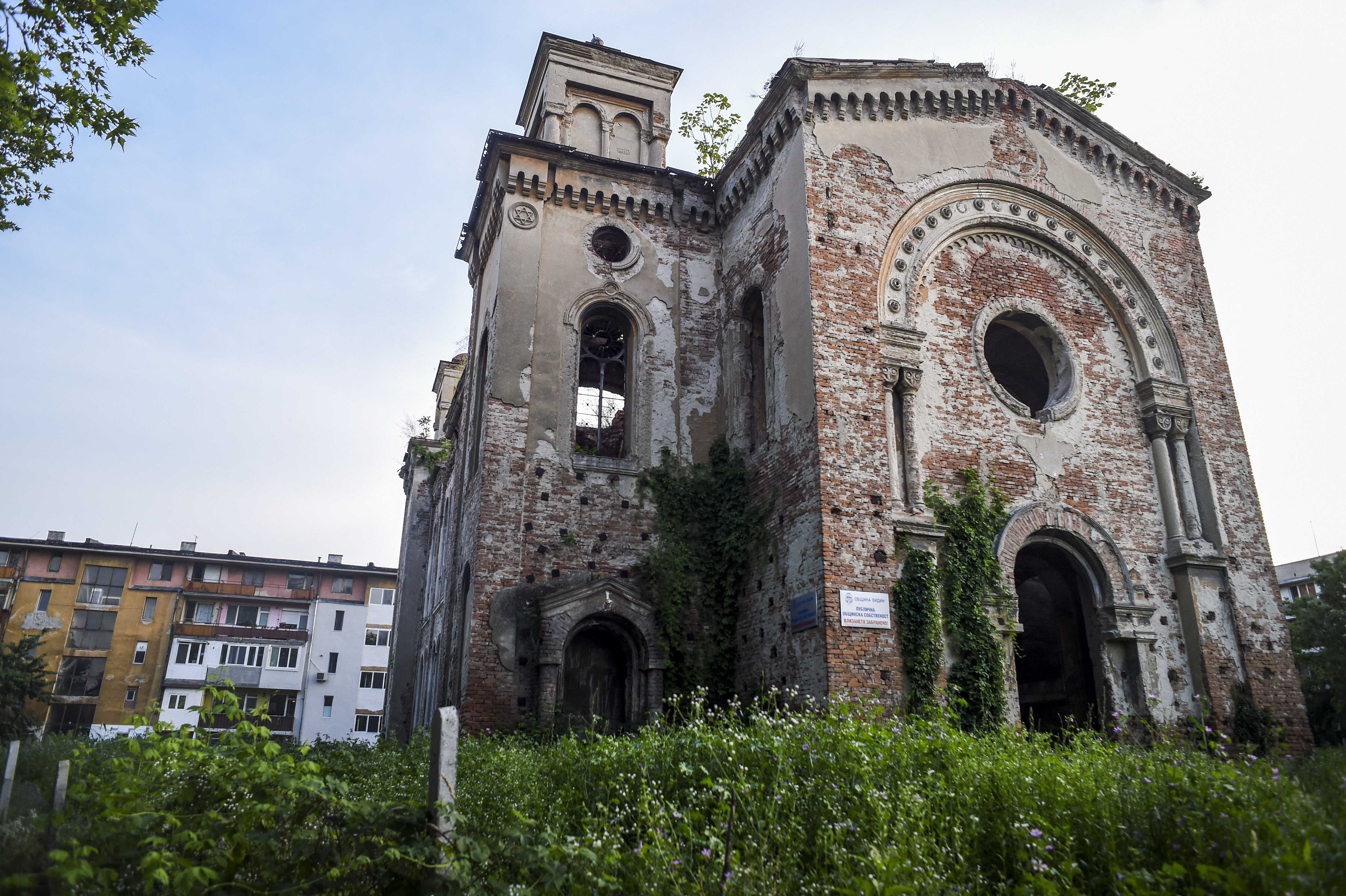
Vidin’s abandoned synagogue testifies to its once-sizeable Jewish community. Photo: © Nikolay Doychinov
In Vidin city today, vegetation merges with civilisation. Trees and shrubbery soften the appearance of concrete apartment blocks from the communist era. In spring, the scent of blossoming lime trees fills the empty streets. In the main square, a giant screen broadcasts a public information video on continuous loop, regardless of the time of day. There are also hints of a bygone cosmopolitanism. The downtown neighbourhood of leafy streets and crumbling mansions once housed the consulates of regional players such as Russia, Austria and Romania. The synagogue, overrun with weeds, was once the second-largest in Bulgaria.
Vidin owes its former status to geography. Situated on the banks of the River Danube, it was for centuries a trading outpost, contested by Serbian, Hungarian and Ottoman rulers. Under Bulgaria’s communist government, the city was developed into an industrial centre. By 1980, it was manufacturing all the country’s telephones and two-thirds of its tyres. Souvenir ashtrays from the city depicted a tyre encircling its best-known landmark – the medieval Baba Vida fortress.
‘Chicken-and-egg problem’
Both of Nikolay Tsochev’s sons joined the westward exodus, moving to Spain to work in the IT sector. Meanwhile, the 65-year-old security guard left Vidin city and moved to the nearby village of Novo Selo, where his salary of 320 euros stretches further. His sons sometimes help out financially. “How can I ask for more?” he told BIRN. “Is it normal for the calf to feed the cow?” He used to run a waterproofing business but closed up shop in 2010, as the global financial crisis swept through Bulgaria. “People had no money to renovate their homes,” he said.
The per capita income in Vidin province is 3640 euros, or half the Bulgarian average, according to the EU’s statistical body, Eurostat. The unemployment rate in the province is 13.5 per cent – three times the Bulgarian average. The figures cannot be treated as strictly accurate, as they do not account for a sizeable grey economy. Many people work without contracts, their incomes discreetly supplemented by cash remittances.
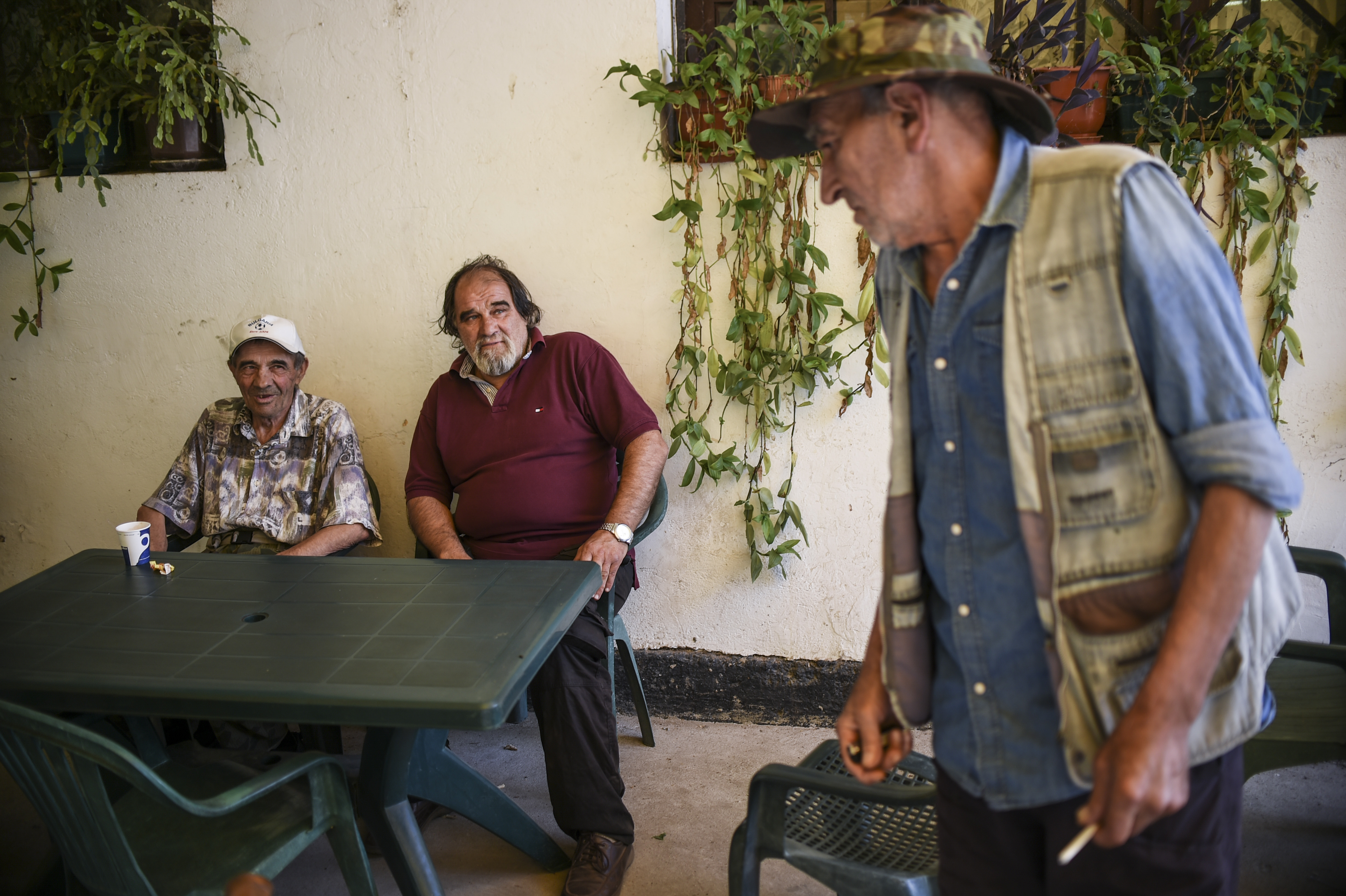
Nikolay Tsochev, seated in the middle, says he would have struggled to survive on his security guard’s salary in Vidin. Photo: © Nikolay Doychinov
In the town of Belogradchik, 56km from Vidin city, the unemployed while away their time in cafes. Mayor Boris Nikolov said the jobless prefer to survive on remittances rather than taking on work. “You can’t even find four people to run a mobile coffee stall,” he told BIRN. Nikolov said the official population figures for his town were deceptive, as many had gone abroad undetected. “We were 10,000 people in 1991, now we’re 5,000 on paper, and maybe 3,000 in reality,” he said.
Abandoned by its working-age adults, Vidin has become a land of the old and, occasionally, the juvenile. Some of the migrants have left behind “Skype children”, so named after the best known of the apps that keep them in touch.
The children are typically entrusted to the care of grandparents supported by remittances. In Bulgaria’s north-west, 44 per cent – or almost half – of the children aged 10-17 had one or both parents working abroad, according to a report by the UN children’s agency, Unicef. In Bulgaria as a whole, the average figure was 23 per cent, or one in five children.
“Parents leave because they have to, not because they want to,” said 18-year-old Kristin Valentinova. A high-school graduate in Vidin, she barely saw her father for 13 years, when he was living and working in Cyprus. For two of those years, while her mother was living with her father, Kristin was raised exclusively by her grandmother. All of the 26 students who graduated from her high school class have left Vidin. She followed suit last year, moving to the Netherlands to study business.
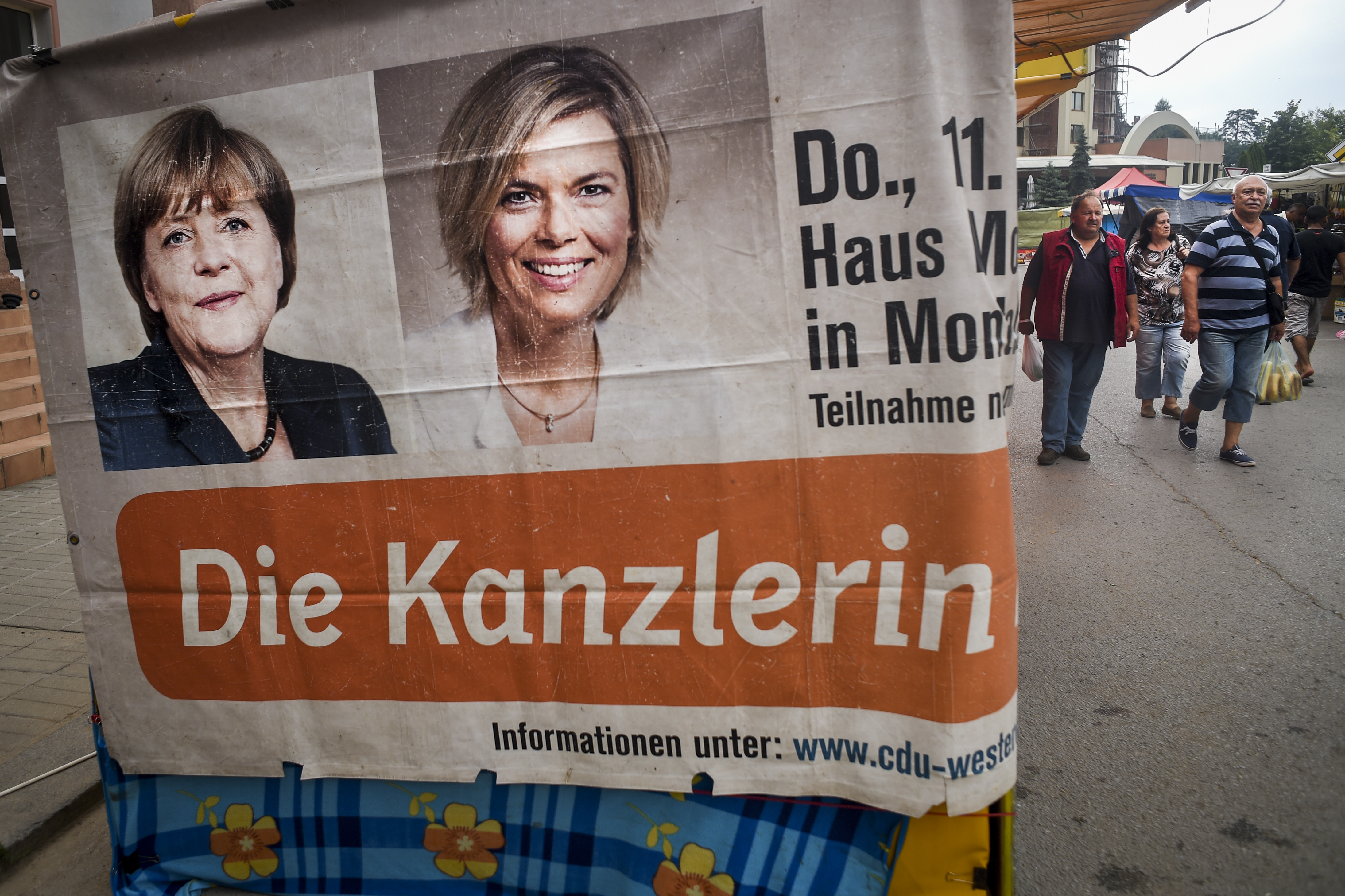
A poster of German chancellor Angela Merkel adorns a wall in Belogradchik. Germany is a major destination for Bulgarian migrants. Photo: © Nikolay Doychinov
Hopes for grand schemes to revive Vidin’s fortunes have yet to be fulfilled. The inauguration in 2013 of a road bridge across the Danube, linking Vidin to Calafat in Romania, increased the amount of traffic through the province but did not create many jobs. In 2017, the national government rolled out a one-million-euro employment programme for Bulgaria’s north-west, aimed at encouraging employers to retain local workers for at least a year. According to Radoslav Georgiev, a Vidin-based economist for the Active Society think tank, 90 per cent of the employees were laid off after the programme ended.
Vidin’s faltering economy and its declining population have created a “chicken-and-egg problem”, according to Georgi Stoev, the founder of a Bulgarian tech incubator. He said employers stay away from areas such as Vidin, “claiming there are no suitable people to hire, and young people leave, saying there are no suitable employers”.
‘Demographic headwinds’
The exodus of Bulgaria’s workers began in the 1990s, in the turmoil after communism, and continued well into the new century. The country’s entry into the EU in 2007 was preceded by concerns that migration would peak after freedom of movement was extended to all its citizens. Anticipating a surge, wealthy EU economies – from Italy, Austria and Germany to the Netherlands, the UK and Ireland – imposed temporary restrictions on workers from Bulgaria and Romania, which had also joined the bloc in 2007. The last of these restrictions expired in 2014.
Günter Verheugen, the EU’s Enlargement Commissioner between 1999 and 2004, told BIRN that he had been concerned by the potential impact on the Romanian and Bulgarian economies of losing yet more workers. During the pre-accession talks, he said, the temporary restrictions were seen as a means not just of protecting labour markets in Western Europe but also of protecting “development in the candidate countries”. However, policymakers were taken unawares by the rate of population decline. “With Bulgaria and Romania, nobody could expect depopulation to be that fast,” Verhuegen said.
Bulgaria’s chief negotiator in the accession talks, former deputy Foreign Minister Vladimir Kisyov, told BIRN that EU leaders had on the whole been “pragmatic” about extending freedom of movement, recognising that the measure would alleviate domestic labour shortages. “EU countries that lack workers benefit from our people,” he said.
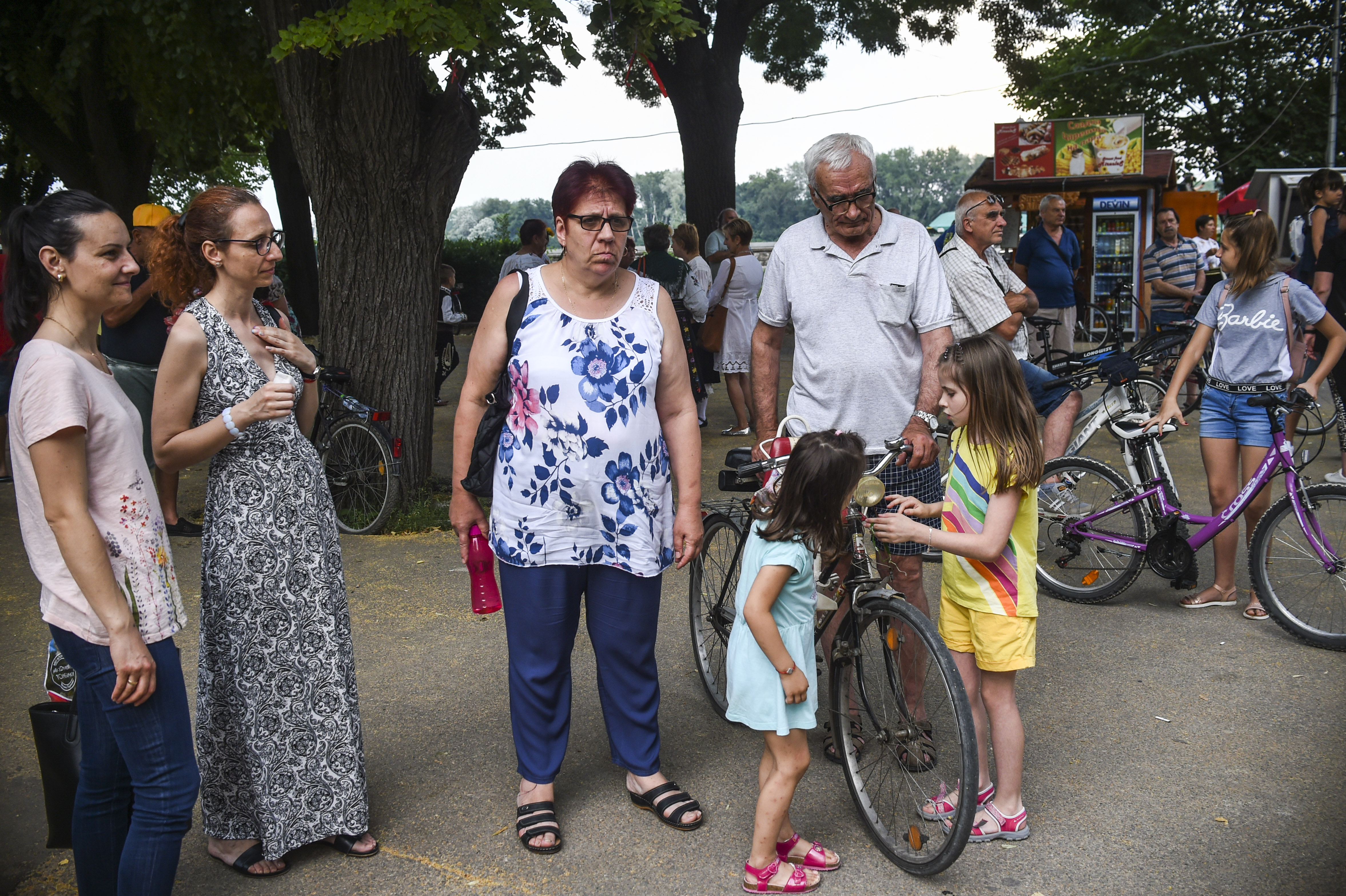
In many parts of north-western Bulgaria, the elderly outnumber the young. Photo: © Nikolay Doychinov
Romania and Bulgaria were of course also expected to benefit from EU accession, as had others in the region after joining the bloc. In theory, the economic gains that came with membership could help slow the rate of demographic decline, by reducing the incentives for emigration.
Living standards do appear to have improved after accession. When Bulgaria joined the European Union in 2007, its per capita GDP was 40 per cent of the average of the bloc’s 27 member states. In 2018, it was 50 per cent of the average across a 28-member bloc. The unemployment rate is at a historic low.
However, the demographic decline has also continued. Tens of thousands of young Bulgarians still leave for Western Europe every year. The number of Bulgarians living and working abroad has doubled since their country joined the bloc, according to the EU’s statistical agency, Eurostat. Twelve percent of the country’s workforce today lives in other EU states.
Nor, of course, is emigration the only factor behind the decline. Bulgaria’s fertility rate, at 1.5 births per woman, is well below the minimum needed to maintain the population, even before accounting for the loss from emigration. In Vidin province, the number of births every year has fallen by two-thirds since 2000.
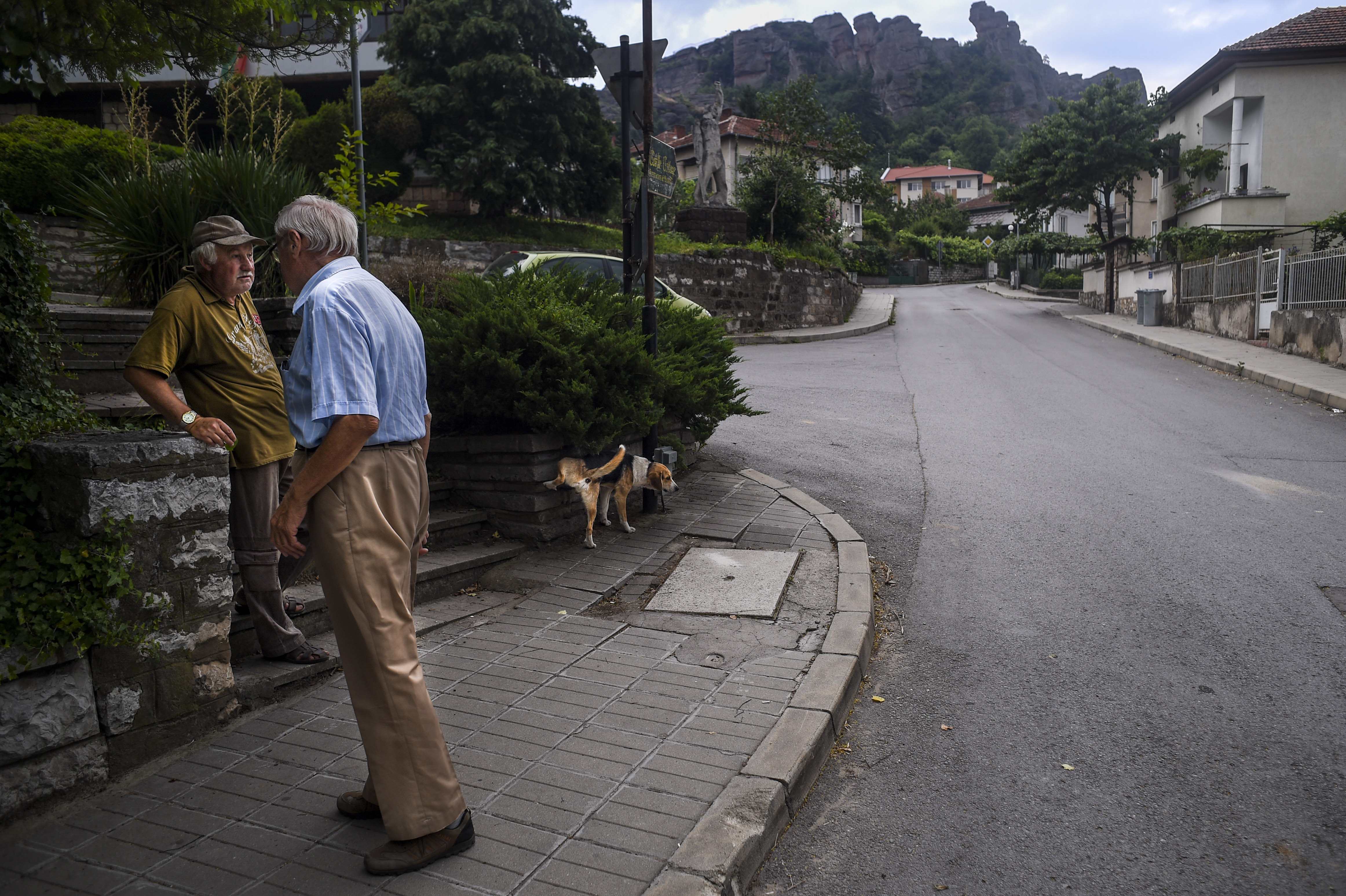
A shrinking workforce can make it harder for governments to pay for the pension and healthcare needs of the elderly. Photo: © Nikolay Doychinov
While Bulgaria’s economic gains after joining the EU have not curbed its demographic decline, that decline has most likely hindered those gains. According to a region-wide survey by the International Monetary Fund, IMF, the projected per capita GDP of central, Eastern and South-Eastern Europe could have risen to 74 per cent of the Western European average by 2050 – a big rise from its current level, 52 per cent. However, after taking population decline into account, the IMF revised the region’s projected per capita GDP over the same period to no more than 60 per cent of the Western European average. In the words of the survey, “demographic headwinds” had slowed the rate of “income convergence”.
‘Taking up the Kalashnikov’
At the other end of Eastern Europe, the Baltic state of Lithuania is projected to match Bulgaria’s rate of population decline by 2050, according to the latest UN projections. Since 1990, the country has lost 883,000 people, or nearly a quarter of its population, mostly from emigration to the EU.
As elsewhere in the region, demography has become a major political issue, though it has not fuelled the kind of nativist populism seen in Poland and Hungary. The Lithuanian government is led by the Farmers and Greens Union, a new party that was elected on a promise to improve social welfare and curb emigration to the EU.
Alongside policies aimed at encouraging the return of expatriate workers, the party has introduced subsidies for rural house purchases to tempt Lithuanian citizens to settle in the de-populating countryside. “Ten new families in a small area could mean ten new businesses,” the party’s deputy chair, Tomas Tomilinas, told BIRN. He added, however, that the impact of the subsidy had been largely “symbolic”.
Faced with chronic labour shortages, the Lithuanian government also began easing restrictions on foreign workers three years ago. The country is now officially home to a record 58,000 foreigners, with tens of thousands more believed to be working in the grey economy. Most have come from Ukraine, with smaller numbers from Belarus and Russia. They have been employed in the road haulage and construction sectors, where they have been accused of depressing wages.
“Ukrainians coming to Lithuania are victims of their ignorance of the law,” said Volodymyr Kurylo, a Ukrainian migrant who runs a construction brigade in Vilnius. While glad to be earning a higher wage than he would get at home, he was also considering moving his family to Germany, for an even better wage.
Tomilinas acknowledged that the influx of migrant workers had helped the economy, but he added a note of caution. Easing immigration restrictions, he said, was like “shopfront displays of chocolates, alcohol and cigarettes” – a tempting quick-fix for the problem of demographic decline.
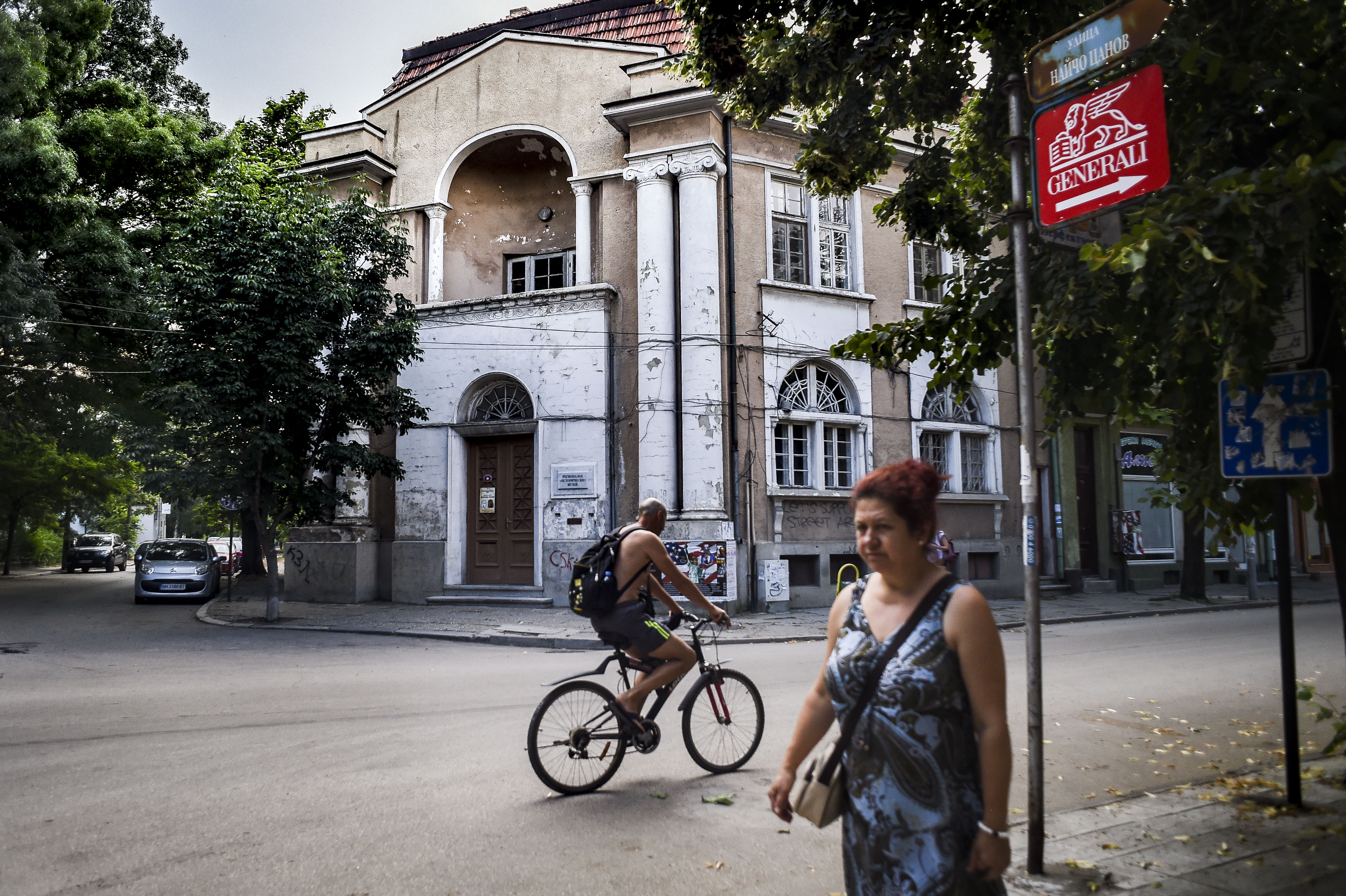
Government attempts to slow Vidin’s population decline have had little impact so far. Photo: © Nikolay Doychinov
There is little indication yet that Bulgaria will attempt to lure migrant workers on anything resembling the same scale as Lithuania. Hostility to non-European newcomers, in particular, peaked during the recent migration crisis, when thousands of people fleeing war and poverty in the Middle East and South Asia passed through Bulgaria on their way into Western Europe.
“If migrants come, I will take up the Kalashnikov,” said Nikolay Tsochev, the former waterproofing businessman. “Even if they were not Muslims, we would end up worse off. A Ukrainian would work here for a lower wage.”
Ognyan Nenchev, the veterinarian, is more amenable to the prospect. “It wouldn’t be bad to bring migrants in,” he said. “Some might say that migrants depress the wages of Vidin’s citizens. But where are these citizens they are talking about?”
As he searches for the next job that will take him away from Vidin, Ognyan recalls the one occasion that he too was tempted to go abroad, by the offer of work and cheap lodgings in Germany. He made it as far as the coach station, where he was turned away for trying to board the bus with his pet cat. “How could I leave her behind?” he recalls. And so he stayed on, his frustration with Vidin meeting its match in his affection for a cat.
First published on 26 February 2020 on Balkaninsight.com.
This text is protected by copyright: © Angel Petrov, edited by Neil Arun. If you are interested in republication, please contact the editorial team.
Copyright information on pictures, graphics and videos are noted directly at the illustrations. Cover picture: An exodus of working-age Bulgarians has left north-western towns, such as Belogradchik, to the elderly. Photo: © Nikolay Doychinov
This article was produced as part of the Balkan Fellowship for Journalistic Excellence, supported by the ERSTE Foundation in cooperation with the Balkan Investigative Reporting Network.